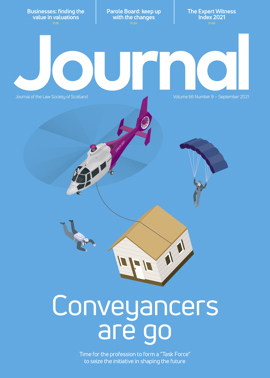Sport: Arbitration – within the rules?
Manchester City FC v Football Association Premier League [2021] EWHC 628 (Comm) (17 March 2021) has offered insight into (i) drafting rules in sports regulation; and (ii) appropriate structures for arbitration, including the question of bias in appointments.
The heart of the dispute is financial fair play and the Premier League (“FAPL”) inquiry that commenced following a series of leaks in continental Europe. Manchester City (“MCFC”) petitioned the High Court arguing that arbitration was not possible, when FAPL commenced arbitration following MCFC’s failure to comply with a request for information and documents.
Scope of arbitration
The first argument hinged on the interpretation of the rules governing the FAPL. Clubs competing in the FAPL are shareholders for that season. The relationship is governed by the articles of association and its rules. Rule X.2.1 stated: “[the league and clubs agree] to submit all disputes which arise between them… whether arising out of these Rules or otherwise, to final and binding arbitration” (emphasis added).
One would assume that, to most, the words “all disputes” would mean precisely that. MCFC referred to another rule, stating that one category of disputes is: “X.3.1. disputes arising from decisions of Commissions or Appeal Boards made pursuant to Rules W.1 to W.83 (Disciplinary) of these Rules (‘Disciplinary Disputes’)”.
Rule W has its own mechanisms by which FAPL can investigate and mete out justice. MCFC contended that the issue at hand should not have been addressed by rule X, and that there was an implicit limitation placed on it by rule W. Mrs Justice Moulder held: “In my view the club is in substance seeking to imply a term into the rules which is not there”, and that the breadth of rule X.2.1 permitted arbitration to proceed. She rejected the club’s application for an order under s 67 of the Arbitration Act 1996 (that the arbitral tribunal was wrong to conclude that it had jurisdiction to determine the case).
Appearance of bias
The club’s alternative position was to say that the arbitrator appointment process breached the principles of impartiality and independence and had the appearance of bias. When assessing the presence of bias, it is necessary to ask “the question of whether the fair-minded and informed observer, having considered the facts, would conclude that there was a real possibility” of bias (per Porter v Magill). Appearance of bias etc was asserted as the individuals were drawn from a pool who were available to FAPL for this purpose for three years.
Moulder J offered a helpful checklist that could help shape arbitration in sports by listing what she described as the main factors in the present context, including remuneration; process of appointment; control of reappointments; reputation and experience of individuals; and tactical challenge to achieve delay. Key questions included: do the arbitrators derive their livelihood from acting as arbitrators? Does each party have a say in who is appointed? Do the arbitrators have more than a mere interest in obtaining further appointments? Do the arbitrators have little by way of reputation or experience in these matters? In layman’s terms, is someone kicking up a fuss about bias just to stall for time?
With three QCs appointed, one by FAPL, one by the club and each appointing the chair (a familiar model in sports arbitrations), Moulder J held: “I do not accept on the facts of this case and for the reasons discussed above, that a fair minded and informed observer would conclude that as a result of the methods of appointment and reappointment to the panel, the arbitrators in this case were ‘beholden’ to [FAPL]... and would thus conclude that there was a real possibility of bias.” Allegations of bias, especially on the part of officers of the court, are difficult to make out, particularly when those asserting bias in the construct of the process are shareholders and approve that process each year.
Commentary
While the Arbitration Act 1996 applies to England & Wales, arbitration within sport and in Scottish sport is increasing, a current example being that involving the SPFL and Rangers FC regarding the title sponsorship of the SPFL. The judgment offers helpful guidance not only to those drafting rules creating arbitration (including mandatory arbitration), those who may be faced with a challenge to their jurisdiction and to the question of the appointment of arbiters.
The principles discussed and conclusions reached may also prove of assistance when reviewing other panels put together by sports, for matters such as disciplinary procedures, conduct in sport, anti-doping, and safeguarding, where experienced individuals are appointed and often have to determine complex and sensitive matters for the good of the sport in question.
Regulars
Perspectives
Features
Briefings
- Civil court: Legacy of COVID
- Corporate: The enigma of economic duress
- Employment: where will work be found?
- Intellectual property: David v Goliath battle continues
- Agriculture: Crofting disputes: some first principles
- Sport: Arbitration – within the rules?
- Property: ADS: the hidden traps
- In-house: On harm, stakeholders and risk management
In practice
- Ask Ash: Colleague's chat is my privacy
- Lockdown no more
- The Word of Gold: The potency of passion
- Get interactive at the Law and Technology Conference
- Ten red flags for conveyancers
- The Eternal Optimist: So, what do you want to be?
- Commissary: the top 10 failings
- Mobility challenges – and the kindness of strangers
- When all is remote






